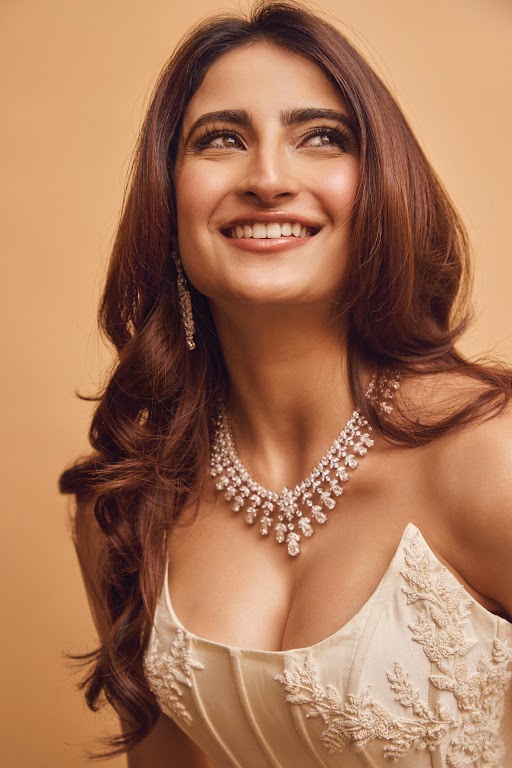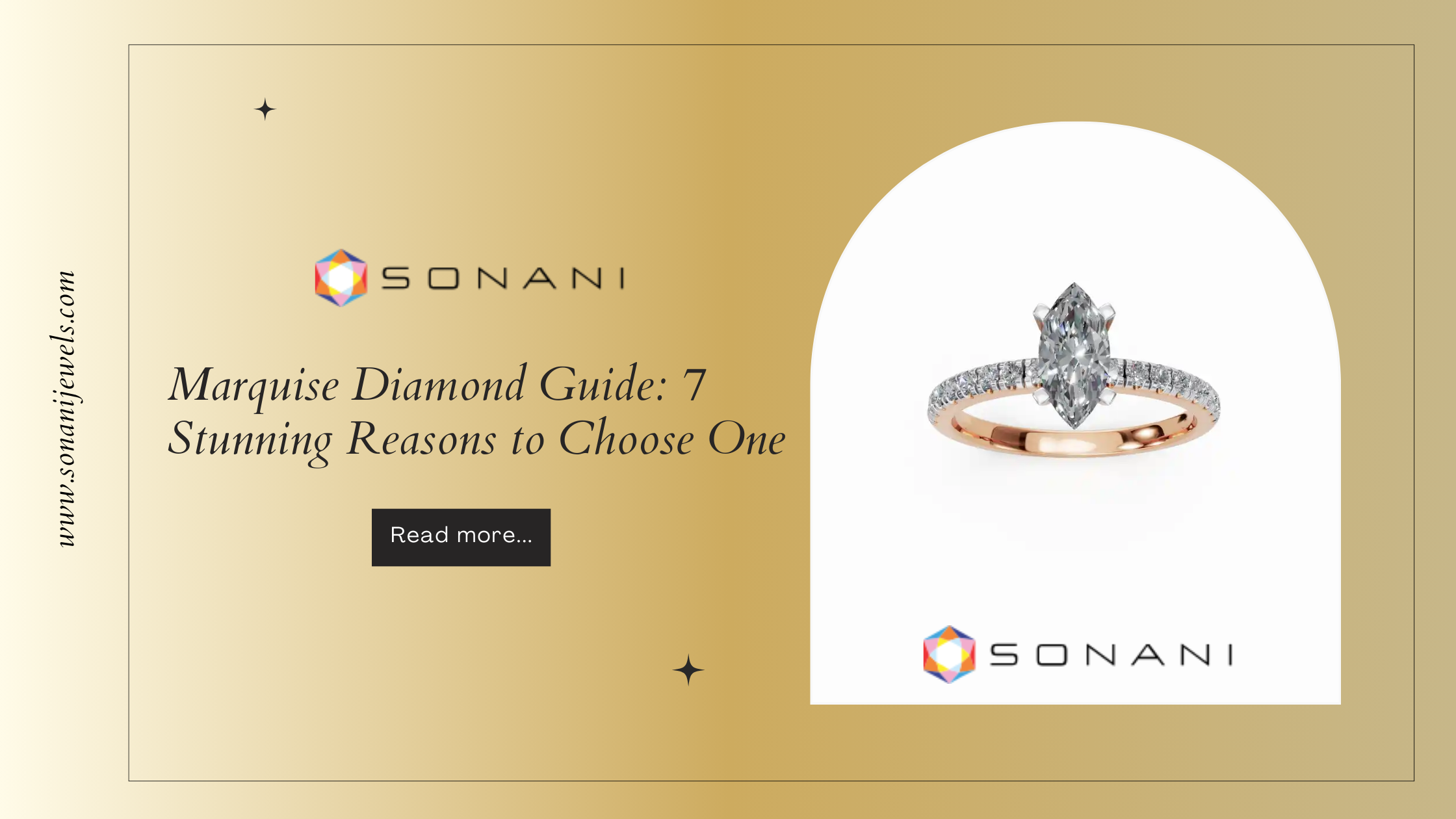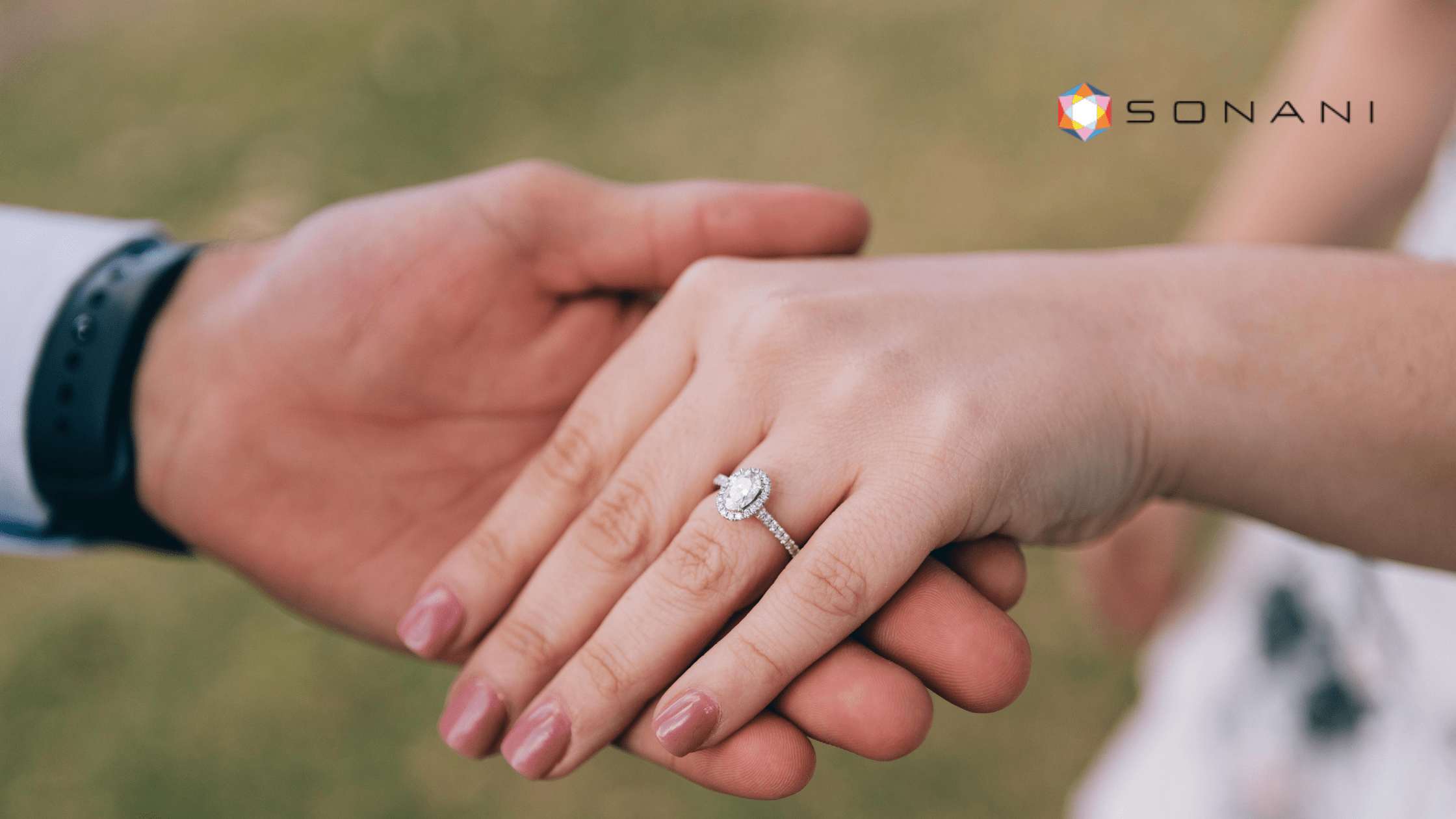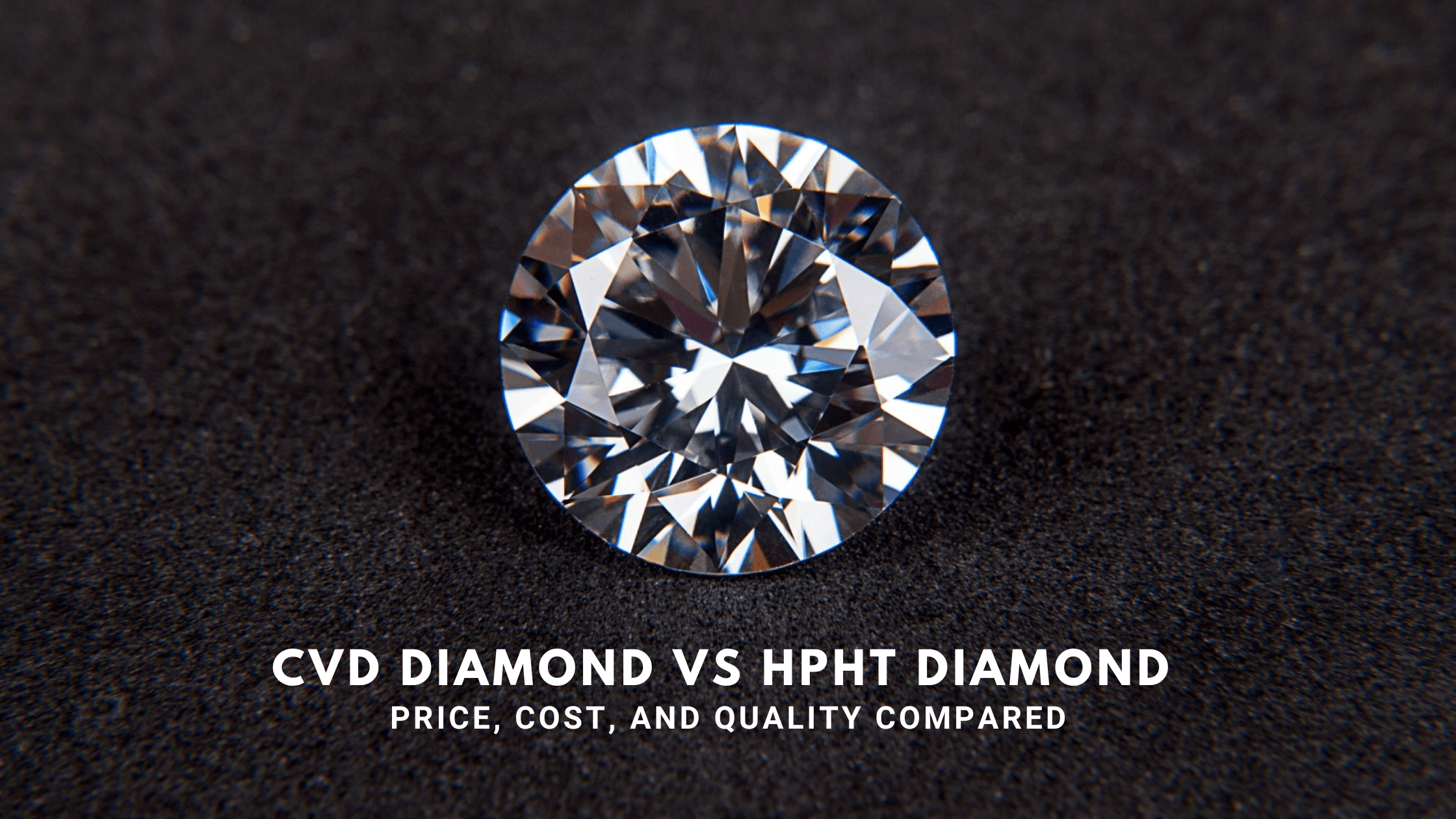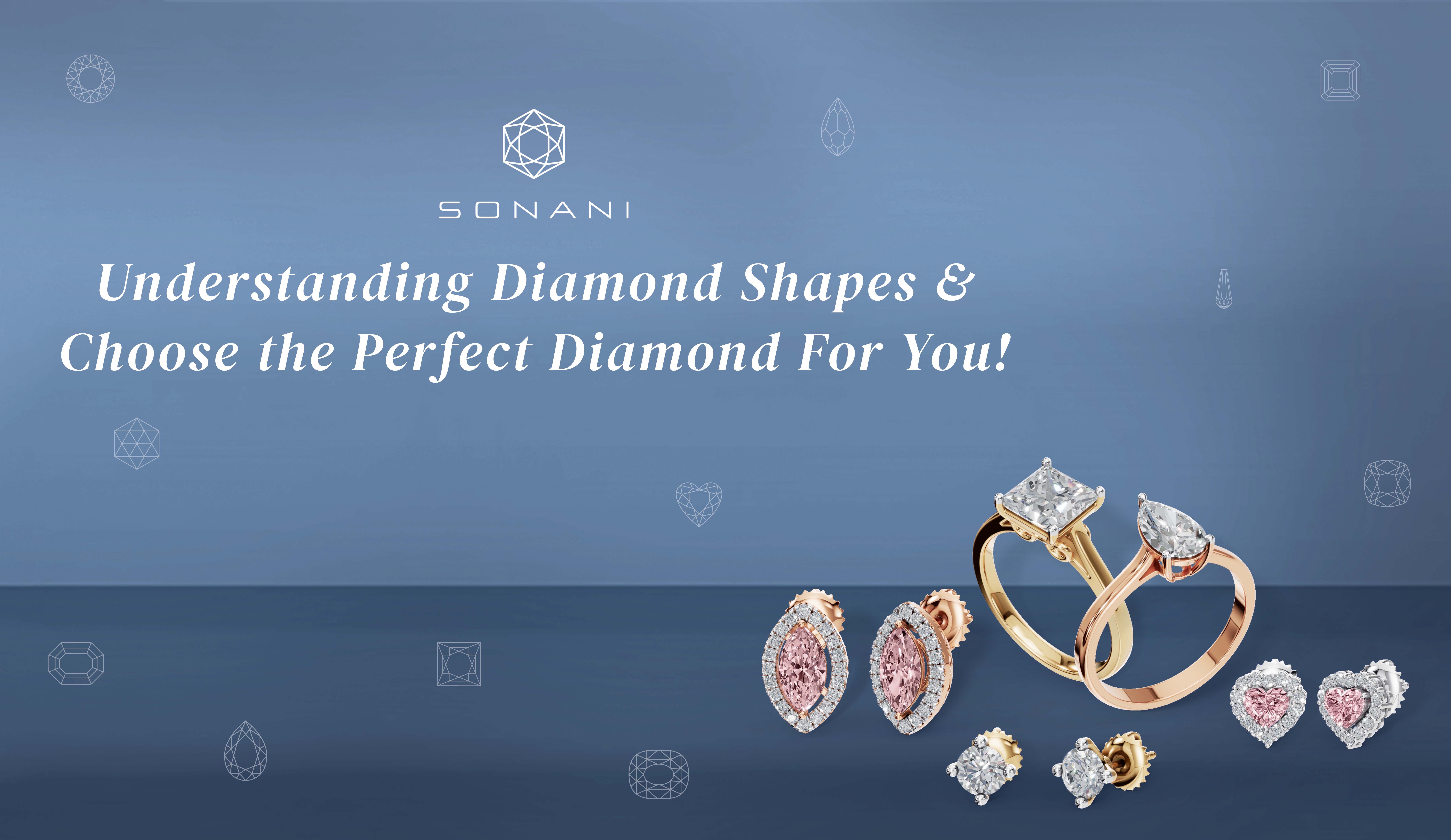Different Types of Diamonds
Diamonds are universally cherished for their beauty, rarity, and timeless appeal. Whether you're purchasing an diamond rings, a wedding band, or a special gift, knowing the different types of diamonds is crucial in ensuring you make the right investment. With a rich variety of diamonds available in the market today, it can be confusing to decide which type suits your preferences and budget.
In this guide, we will walk you through the different types of diamonds, discuss the types of diamond shapes, and help you understand the key aspects of diamond quality, such as the 4 C's of diamonds. Additionally, we'll explore the significance of diamond certification and how brands like Sonani Jewels can guide you toward the perfect diamond for any occasion.
What Are the Different Types of Diamonds?
The term "diamond" doesn't just refer to a single variety. There are several types of diamonds, each with unique characteristics that distinguish them from others. Whether natural, lab-grown, or treated, each type offers its advantages.
1. Natural Diamonds
Natural diamonds are formed deep within the Earth's mantle under intense pressure and temperature over billions of years. These diamonds are then mined from specific locations worldwide. Natural diamonds are prized for their rarity, and their value increases based on their size, colour, and clarity. If you're looking for a diamond that is billions of years old, a natural diamond is an ideal choice.
2. Lab-Grown Diamonds
Lab-grown diamonds are becoming increasingly popular due to benefits of lab grown diamonds affordability and ethical sourcing. These diamonds are created in controlled laboratory environments using advanced technologies that simulate the natural conditions under which diamonds form. Lab-grown diamonds have the same physical, chemical, and optical properties as natural diamonds. Jewellers like Sonani Jewels offer a wide selection of lab-grown diamonds jewellery that are indistinguishable from natural ones, making them an excellent choice for budget-conscious buyers.
3. Treated Diamonds
Treated diamonds are natural diamonds that have undergone treatments to improve their appearance. These treatments can enhance the diamond's colour or clarity. Laser drilling, high-temperature annealing, and fracture filling are common treatments used to improve a diamond's aesthetic appeal. While treated diamonds are typically less expensive than untreated diamonds, it is important to disclose any treatments applied to ensure transparency.
4. Coloured Diamonds
Coloured diamonds are another type of natural diamond, often referred to as "fancy diamonds." These diamonds come in various hues such as yellow, blue, pink, and even red, making them rare and valuable. The colour in these diamonds is a result of specific trace elements or structural irregularities present during their formation. Coloured diamonds are perfect for those seeking something unique and extraordinary.
The 4 C's of Diamonds: Understanding Diamond Quality Types
When evaluating a diamond, whether natural or lab-grown, the 4 C's of diamonds—Cut, Colour, Clarity, and Carat Weight—are critical factors that determine its overall quality. These universal grading standards help buyers assess the diamond’s value and ensure they get the best for their money.
1. Cut
The cut refers to how well a diamond's facets reflect light. A well-cut diamond will exhibit exceptional brilliance and sparkle. The cut is often considered the most important of the 4 C's, as a poorly cut diamond can appear dull even if its colour and clarity are excellent.
2. Colour
Diamonds come in various shades, but the most valuable diamonds are those that are nearly colourless. The diamond colour scale ranges from D (colourless) to Z (light yellow or brown). For buyers seeking the purest white diamonds, a colour grade between D and F is ideal.
3. Clarity
Clarity measures the presence of internal or external imperfections, known as inclusions and blemishes, respectively. The fewer the imperfections, the higher the clarity grade. The clarity scale ranges from Flawless (F) to Included (I).
4. Carat Weight
Carat weight refers to the size of the diamond. Larger diamonds are rarer and more expensive, but carat weight should always be balanced with the other (3 carat lab grown diamond) three C's to ensure a high-quality stone.
Types of Diamond Shapes: Finding the Perfect Cut
In addition to the different types of diamonds, the shape of a diamond is one of the most critical factors to consider. The types of diamond shapes influence how a diamond interacts with light and its overall appearance. Each shape has a distinct style, catering to different tastes and preferences.
1. Round
The round shape is the most popular diamond shape, accounting for more than 75% of all diamonds sold globally. Known for its ability to maximise light reflection, this classic shape is highly sought after for engagement rings and other fine jewellery.
2. Princess
The princess shape is a square or rectangular shape with pointed corners. It is the second most popular shape due to its modern and edgy design. Princess-cut diamonds are perfect for those who want a contemporary look with plenty of sparkle.
3. Cushion
The cushion cut diamond, also known as the pillow cut, has soft, rounded edges and large facets that enhance its brilliance. This shape offers a vintage, romantic appeal, making it a popular choice for engagement rings.
4. Oval
The oval cut diamond has an elongated shape, creating an illusion of larger size while maintaining excellent brilliance. Its elongated form makes the wearer's fingers look slender, and it is a popular choice for rings and pendants.
5. Emerald
With its rectangular shape and step-cut facets, the emerald cut diamond emphasizes clarity over brilliance. This cut offers a sophisticated, elegant look and is perfect for showcasing high-clarity diamonds.
6. Marquise
The marquise cut diamond is elongated with pointed ends, making it appear larger than it actually is. This shape is perfect for those who want a unique and bold design.
7. Pear
The pear cut diamond, resembling a teardrop, combines the round and marquise shapes, offering a graceful and delicate appearance. This cut is ideal for earrings and pendants.
8. Heart
A romantic and symbolic shape, the heart cut is a variation of the round shape, with a cleft at the top and a pointed bottom. It exudes love and passion, making it ideal for sentimental pieces.
9. Radiant
A rectangular shape with sharp corners, combining the brilliance of the round cut with the geometry of an emerald shape. The radiant shape offers a unique sparkle with a bold, modern edge.
Different Types of Cut Grades
1. Super Ideal Cut
A super-ideal cut is the finest cut you can ever see. It represents the highest level of precision and craftsmanship. These diamonds are cut to the most exacting standards, with proportions that reflect the maximum possible light, offering the best brilliance and visual appeal. The diamonds with these cuts are the most expensive ones.
2. Ideal Cut
An ideal cut is considered the pinnacle of diamond cutting. It is designed to create the optimal combination of brilliance, fire, and scintillation, reflecting almost all the light that enters the diamond. The polish and symmetry of this cut can each be one less than Super Ideal Cut.
3. Very Good Cut
A very good-cut diamond is of exceptional quality. It reflects nearly as much light as an ideal-cut diamond but it is priced in a different range. It is offered at a more affordable price.
4. Good Cut
This cut strikes a balance between size and beauty. It reflects most of the light that enters the diamond, giving it a pleasing sparkle without compromising its overall size. But these cut diamonds can be slightly imperfect. However, they have brilliance just like the Good-cuts.
5. Fair Cut
A fair-cut diamond reflects some light but is not as brilliant as a good cut. This cut maximizes the diamond’s weight but sacrifices some of the sparkle and visual appeal. Still, it remains a quality diamond.
Note:- The Diamonds Cuts and shapes are different.
Diamond Certification: A Guarantee of Quality
When purchasing a diamond, it’s essential to ensure that it comes with a proper diamond certification. Certification from a recognized gemological institute guarantees that the diamond has been evaluated and graded by experts. Common certification bodies include:
Gemological Institute of America (GIA): Known for its strict grading standards and accuracy.
International Gemological Institute (IGI): A popular choice for diamonds sold in India, IGI certification ensures transparency and reliability.
Bureau of Indian Standards (BIS): Offers hallmarking services for gold and diamond jewellery, ensuring that Indian consumers get certified, high-quality diamonds.
At Sonani Jewels, all diamonds come with a trusted certificate, ensuring that buyers receive a genuine and well-graded diamond.
How to Choose the Right Diamond for Your Jewellery
When selecting a diamond, whether for an engagement ring, a wedding band, or a diamond necklace, consider the following tips to ensure you make the best choice:
Determine Your Budget: Set a budget before shopping and stick to it. The 4 C's of diamonds can help you prioritize which features are most important within your budget.
Decide on the Diamond Type: Choose between natural, lab-grown, or treated diamonds based on your preferences and ethical considerations.
Select the Shape: The types of diamond shapes should align with your style and the piece of jewellery you want.
Check for Certification: Always buy diamonds that come with certification from a reputable gemological institute to ensure quality and authenticity.
Conclusion: Find Your Perfect Diamond with Sonani Jewels
Understanding the different types of diamonds is key to making a smart and informed purchase. Whether you're drawn to the classic beauty of a natural diamond, the ethical appeal of lab-grown diamonds, or the vibrant charm of coloured diamonds, each type has its unique benefits.
At Sonani Jewels, you’ll find a wide range of certified diamonds in various shapes and sizes to suit any style and occasion. Whether you're shopping for a timeless
Frequently Asked Questions(FAQ)
Diamonds come in various types including natural diamonds, lab-grown diamonds, treated diamonds, and colored diamonds. Each type offers unique features and benefits.
The 4 C's of diamonds Cut, Color, Clarity, and Carat Weight?are crucial factors that determine a diamond's overall quality and value.
The shape of a diamond influences its appearance and sparkle. Popular diamond shapes include round, princess, cushion, oval, emerald, marquise, pear, and heart, each catering to different styles.
Natural diamonds are formed deep within the Earth over billions of years, while lab-grown diamonds are created in a lab using advanced technologies and have the same properties as natural diamonds.
Diamond certification from recognized bodies like GIA, IGI, and BIS ensures that the diamond has been evaluated for quality, authenticity, and proper grading.
Diamond cuts range from Super Ideal to Fair Cut, each offering varying degrees of brilliance, size, and visual appeal. Super Ideal Cut represents the highest level of precision, while Fair Cut balances weight and sparkle.
The round diamond shape is known for maximizing light reflection, offering the highest level of brilliance and sparkle among all diamond shapes.
To ensure a quality diamond, always check for certification, consider the 4 C's, choose the right type and shape, and buy from a reputable jeweler like Sonani Jewels.


